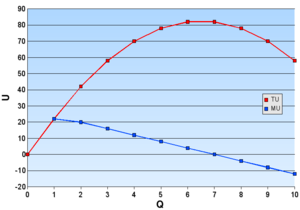What is mathematics anyway? A system that can help us understand the world? A system of absolute truths? In this post I lay the case for their true purpose.
What is Mathematics? As a concept, you’d be hard pressed to find someone not using it one a daily basis which tells us that this is something that comes somewhat naturally to humans.It is of course popularized and taught from a young age in the modern age, but this is not of course to mean that this is the reason for its popularity, since even unschooled people can intuitively understand and perform basic calculations.
However, this does not explain to us what Mathematics actually is and this is actually becoming a sticky point lately, as weird as that sounds. For this reason, I think we need to dispel some misconceptions about the role of mathematics in human life.
Mathematics is not descriptive
The role of mathematics is not to describe reality. In fact, mathematics cannot tell us anything useful in isolation. I cannot make any prediction at all from the equation of 1+1=2. I cannot make any conclusion, moral or empirical from any possible calculation or mathematical proof.
Rather, mathematics is explanatory. It’s role is not to provide us with knowledge, but much like logic and language, to provide us with a method to communicate ideas to other humans, or more explicitly, other brains that we expect to grasp the concept.
For example, language is not descriptive either. Me saying “this is an apple” only describes reality inasmuch as the other person understands what “this”, “is” and “apple” are. This is especially pointed in language, as it is obvious that its form is such as to utilize only the sounds the human mouth makes (and more specifically, the sounds a particular group of humans is used to make most)
And much like we can swap languages around and still communicate the same ideas, so we can swap mathematical systems around with the same effect. It is precisely because mathematics are only use to explain concepts, that the form they take does not matter, as long as those communicating use the same system.
To put it more simply: Logic, mathematics and language are not universal and external concepts, somehow outside and above reality, they are simply the means that evolved primate brains use to explain ideas to one another.
Mathematics is not a science
From the above, it naturally follows that mathematics cannot help us understand how the world works. They cannot provide us with knowledge. They can only help us express this knowledge once we have it.
However, this does not mean that they are not useful in the pursuit of knowledge. In fact, they, along with logic are immensely useful. But this is not because they are a tool that has been invented or discovered by previous generations. In fact it is a misconception to think them as such (which is why it leads to nonsense such as considering logic as proof of a deity) as they are simply the result of how human brains process information. That is to say, they are useful as much as our evolved brain is useful, as they are its result. The brain itself is the actual tool.
Certainly, mathematics take more and more complex forms, on which even more can be based on. However, all of these still do not constitute knowledge, but rather expressions of different logical concepts. That is to say, they are not useful because they give us information we did not possess before, but because they can easily transmit more complex information in a smaller package. One could even think of them as the brain’s compression capability.
The same of course applies to language with its more complex words, which only make sense if one knows a vast number of definitions required to explain them. And much like language, these compressed packets of info, can make no sense to others unless they already have the capacity (ie IQ ((Well, more appropriately I guess it should be Time*IQ)) ) to “decompress”‘ them.
Mathematics is not proof
Mathematics are axiomatic. They are like they are because we say so. Because it’s useful to have them in a particular form which other will understand. But an axiom is not a proof, it’s simply the starting points we set to start explaining the proof.
To give you an example, when I say “I put one apple in a bowl, and then I put another apple in the bowl, so I have 2 apples in the bowl now”, this is not because 1+1=2 proves it. That is simply what I used to describe how many apples I put in the bowl and how many I have in the end. It is simply used to communicate what I did.
It is nonsense to assume that anything that begins with axioms can prove or describe anything. Axioms are only useful only if there is external information which we can use them on, to discover knowledge. This is simply because they can tell us what to expect with the information we have at hand, and the deviation from this expectation, alerts us to the fact that we are missing something.
It is very important to recognise that axiomatic concepts by themselves are useless as it’s impossible to draw any conclusions without applying them to empirical observations. It is this very fine point that many seem to be missing which results in huge edifices of pure logic, which however have no relation to reality. That happens because, in order to turn an axiomatic edifice into a prescription, the ideologue needs to assume a fact, a descriptive concept for reality, and sneak that in as an immutable axiom as well. However, any assumptions that are not based in empirical testing cannot under any circumstances be considered true or unchallengeable.
Objectivism is a good example of this kind of fallacious thinking, as it tried to build itself on top of axioms (“A is A“) but in order to say anything of substance, had to assume facts out of thin air (eg “man qua man”), which of course, ended being it’s Achillean heel.
So to summarize: Mathematics do no describe reality, they merely provide the concept we need to do so. Mathematics do not provide any useful information, only the way to process it. Mathematics cannot prove or disprove anything, but can only draw our attention to missing facts, and that is only if we base them on previous proven facts, not assumptions.
Of course, one might rightly say now that this is all obvious and known. Perhaps, but in order to avoid confusions in my forthcoming posts, I think it’s important to lay some groundwork, and this should also provide an opportunity for people to point out errors in this analysis.

![Reblog this post [with Zemanta]](https://i0.wp.com/img.zemanta.com/reblog_e.png?w=980)








